HORSES AND SELF-CARE
Ponderings related to the field of equine assisted interventions…
Something most therapists, even coaches or whomever work to help people feel better and grow aim at is for their clients to be able to take better care of themselves. Self-care is a topic at the center of many interventions. Or at least, part of them.
The point with self-care – as one can hear from the name – is that it is based on your own ability to care for yourself. Part of self-care can be to reach out and ask for help, but also to accept that when that help is not possible to be gotten, it does not say anything about the validity of your request.
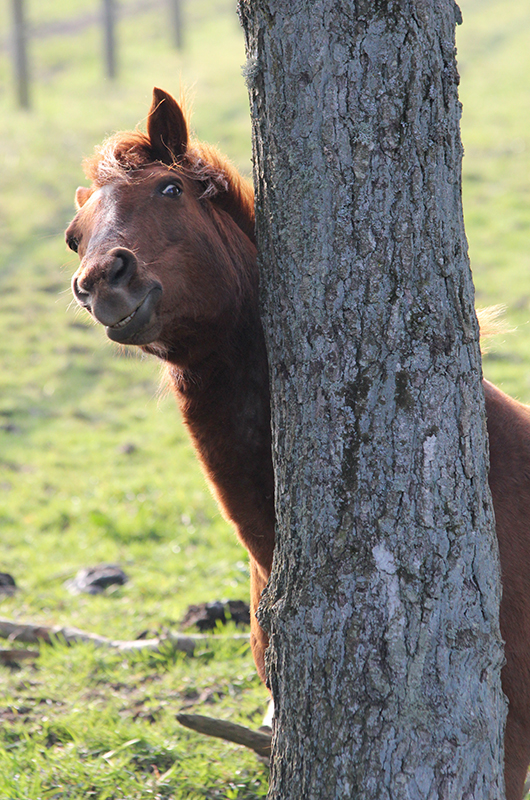 But mainly – self-care is – taking care of oneself.
But mainly – self-care is – taking care of oneself.
Enter horses.
How do we facilitate the understanding of self-care when we seldom (most of us) do not allow, or offer the possibility to horses to exercise much of any self-care?
And not only do we not offer our horses this, but we are often adamant we know better what is good for them, than they do. Most horse-owners I know have a pretty strict care regimen in place. And the whole horse/equestrian world is full (it is a huge market!) of supplements, gadgets (masks, covers etc.), sprays, foods, treatments (light, energy, massage, reiki etc.) – and whatnots to help you take care of your horse’s health. Include in that all the different training techniques, schools, clinics, courses – to help you keep your horse in the best physical form (according to diverse range of teachings).
To me this looks like there is not much trust in that horses can take care of themselves. And frankly, when I bring it up, there are always plenty of answers of what is preventing people from giving horses what they do need the most (space, social interaction with conspecifics (other horses) of their own choice, water, proper vegetation to graze/browse, diverse environment to be able to seek out shelter from weather and insects. The space and the proper vegetation provide the sustenance and the possibility to move as much as is needed to keep their digestive system healthy (as well as the rest of them of course). Big enough environments always offer some possibility for self-grooming, mud/sand-rolling, water sources for cooling of, windy places etc. and a diverse enough ground to take care of their hoofs (if the horse band as a collective have had the time to adapt to the ground – move a horse from a mountain to a muddy paddock – and their hoofs are not adapted to that kind of living conditions).
But people do not in general invest in more space. They rather build barns, paddocks, arenas, tack, and groom rooms, buy equipment, invest in trainers etc. And there are in most countries (not all) quite a lot of space that is unused and would be helped by grazing, but to my knowledge there are few initiatives to get together and rent common land to keep horses at, that are not there for conservational grazing reasons solely.
I have a couple of times brought up the human need to care-take. We humans have species specific needs and traits too. Like any other animals. And prolonged and extensive caretaking is one of them (our kids needs that – as they are born pretty unable to do anything for themselves and they grow and mature so slowly).
So whose needs are we catering for when we ourselves set up how we take care of our horses – at the same time as we quite profoundly exclude them from being able to do that themselves?
I am an outlier in the field of equine assisted interventions. I prefer to offer equine assisted interventions to people, working with horses that are as free as possible, to take care of themselves. Where there is a trust in their capabilities and competence as horses. As horses knowing best what is the best for horses.
I see different kinds of thinking around what horse welfare is and how we best offer it. Most is based on what we need to do for them, to maintain the wanted welfare. Not on what horses can do for themselves.
As I see it – we need to ask ourselves – what do I need to provide them with – so they as much as possible can take care of themselves? How can I – as much as possible – remove myself out of the picture as a caretaker?
Not only do I do this because I trust in horses and their capacity to take care of themselves. I also see it as impossible to meet on equal grounds if I am their caretaker (parent). I am not their parent. Or any equivalent to that. Most horses I meet are adult horses. The ones that are not – are not to be raised by me, but by adult horses (preferable in a mixed group containing different aged horses and sexes).
Historically we humans have been dependent on horses, for a lot of things. To have them drive our carts, drag our plows, be ridden, carry our cargo etc. – we trained them. So they physical would be fit for this work. But also, by doing this work, they got trained (of course). Much of the training of horses even back then was done by people who had the time and money to spend it on training and shows. A famer, a forest worker would bring the foal alongside the mother when the mother worked in the fields, the woods etc. – so it could learn from – social learning, experiential learning, being with their mother doing the learning. It did not revolve around “reinforcements” of any kind. It was learning by being with, observing, then doing – and the processing of this (the way horses process (integrate new learning) stuff).
We are not, most of us in the west, dependent on horses in this way anymore. We ride because we like it, because we think it is fun, because we think it is good exercise (for us) – simply because we want to.
And well. For me. That is perfectly fine. We all make our own choices.
But – when we then claim horses needs to be trained. This is where I have questions. Yes. If you ride them, drive them etc. Yes. It makes sense to train them.
But this is not really the argument is it? Mostly I meet some belief that horses always needs to be trained, to stay fit, no matter what they do or do not do in their lives. That leaving horses un-trained would be poor horse welfare, just by the lack of training (not looking at components as space etc).
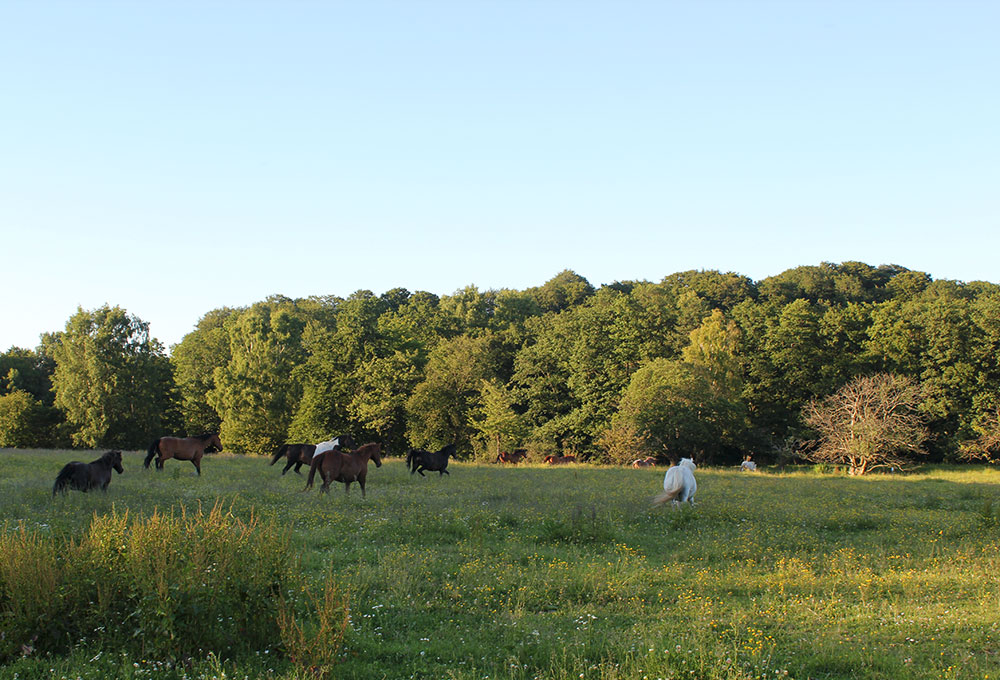 I think horses are the only animal we feel we need to take responsibility for when it comes to their physical fitness?
I think horses are the only animal we feel we need to take responsibility for when it comes to their physical fitness?
And here again – I see. Yes. If you keep your horse in a small pasture/paddock, stall them – they do not get the movement they need to stay healthy. If you on top of that do not feed them properly and do not let them have the social life, they need – then they would not do so good.
And here you have a choice. Go down the route of trainings, supplements, a new arena, more gadgets – all to compensate for what you are NOT giving your horse, but what the horse has evolved to need.
Or you look around you and try to find more space with better, more suitable vegetation, natural diversity of soil, height differences, trees, and water – and provide the horse with what they need to take care of themselves.
The way I work in equine assisted interventions has brought me to where I am with this. I have tried to say this for so many years. Mostly I am met by what I would call excuses. It is not convenient. I get it, when it is time for an equine assisted intervention session – to just be able to go out and grab a horse, is convenient (almost like getting your car out of your garage, or any other object out of where you keep it when you do not use it).
I am very often also met by the statement that I am guilt-tripping people. I get questioned, accused of not understanding that people do their best. That not all people have the money to go off and buy a lot of land.
I know that – this is why I suggest common land, or even communities that together possibly can by land. Threre would be solutions. But those solutions take away the need we have put in place for horses to be cared for.
And this care goes deeper than just care. It implicitly holds the question – if I care for you – will you love me? As we humans show love to those who cannot care for themselves, by caring for them.
This is what I mean with that we need a paradigm shift in the horse/equestrian sector.
Love is not enough. When we want what is best for someone else. We need to see and listen to that someone else. And inbuilt in horses, as a species, is that they need a lot of space and movement, social interaction with trusted other horses, diversity of land and topography. They do not really need humans.
If we want to be in our horses’ lives – how can we be that – and still consider their species specific needs?
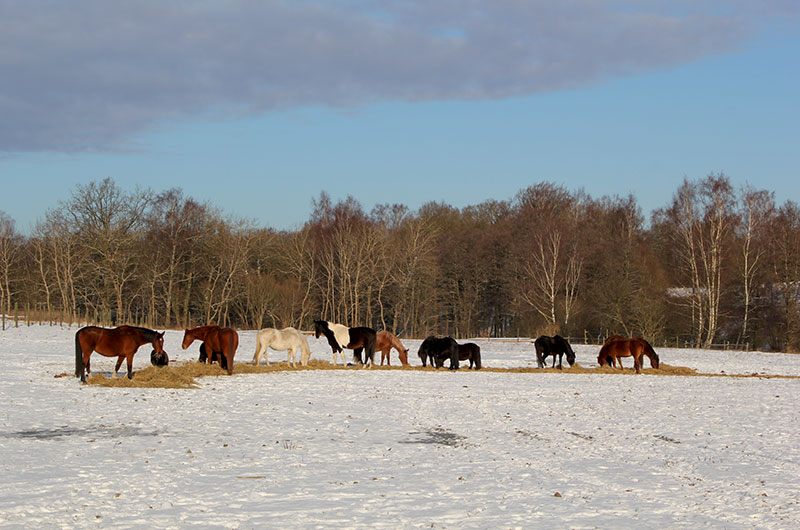 How can we let them take more care of themselves? Instead of directly taking care of them, setting up their environment so they can do more for themselves than we doing it for them?
How can we let them take more care of themselves? Instead of directly taking care of them, setting up their environment so they can do more for themselves than we doing it for them?
We humans are a super inventive species. I am sure we can come up with a lot of different solutions to this. What I am not so sure about is – do people want that?
How many horse people do not live for their horses? Live to take care of them, train them etc?
It is really interesting to bring people out with us on our Learning Wild courses and workshops. Few people have ever seen horses living in the wild (or what is left of it). Join us someday? It really puts all of this into perspective.
Horses are fully functional animals, as they are. They are highly adaptable and can thrive in many different environments. They really can take care of themselves. But, by restricting movement and giving them very little space, keeping them from forming their own horse bands, we are impacting their health and wellbeing. They are highly adaptable, and it is biting them in their butt. But they are not that adaptable. They have the digestive system they have, they grown in the way they do, they socially interact they way they do. That they can survive in almost any setting does not mean they can thrive ther.
I am curious – if you work in the field of equine assisted interventions – how do you role model self-care when working with your horses, that we so often call equal team members?
Often when you work with people on a growth trajectory – it is not so much about what you say – as what you do. And even more so if you have chosen to work in an experiential setting.
I often hear that the horses are teaching us so much. I will debate that another day. But you. Yes YOU. As a facilitator, role model a lot, with your choices around your horses, in anything from choice of housing, management, gadget wearing, environment, trust in your horses, fencing, space, your own body language towards the horses, your own verbal language and tone talking about them, and so on.
What kind of learning are you facilitating? What are you teaching (perhaps inadvertently) to your clients? About equality? Choice? Adulthood? Relationship? Trust? – and also self-care (agency, choice, problem solving, initiative taking, curiosity).
What I see around me in the equine assisted intervention field is not really equine assisted, it is equestrian assisted, or horsemanship assisted. Few say that out loud. Most choose to live in a world where horses somehow are not complete beings. But need humans. I just wonder who is really most dependent on whom? For physical, emotional, social, and cognitive welfare?
I might sound dogmatic. Or rebellious. Or wrong. Or delusional. Or idealistic. The fact remains. Horses need what they need – and humans are not included on that list (but might be in a transition time as we have taught them that we will cater for them and that they need us).
I need congruency when I work. I need to walk my own talk. Or at least move towards that (change takes time).
I am a 100% believer in working with horses when it comes to human growth and yes – also to horses’ growth. They are not mutually exclusive. We all learn functional competency and learn new tools in interactions and in meeting new beings or situations. Giving your horse this in EAI sessions might not be on your agenda, might not be your goal, but it does not exclude that it happens. So it is there…
Beings need what they need. Horses can live pretty healthy lives with a lot of planning, care and training – to compensate for what they do not naturally get. But, it will never be enough. It will impact them, and sooner or later, they will get “issues”.
Horses are not humans. They need things we do not need. In the same way as we need things they do not need.
And yes – what they need can partially be altered by individual needs, but inbuilt species-specific needs do not go away due to being modified by individual needs.
How many times have I heard it? “Yes – well, I hear what you say. I agree, this is what horses need, BUT my horse…”
Who is the horse to us? Why and how do we so strongly attach to them? What is it that we are looking for in our relationships with them?
I have asked a lot – and been given a lot of answers. I often hear it is about connection, a deeply felt connection and communication – a dance. Or it is described as a parent-child relationship, and we are their guides/teachers/stewards (or the opposite to some people). I would say the horse-human relationship is a unique one – and that when we lock ourselves into liking it to something else, we miss out on things.
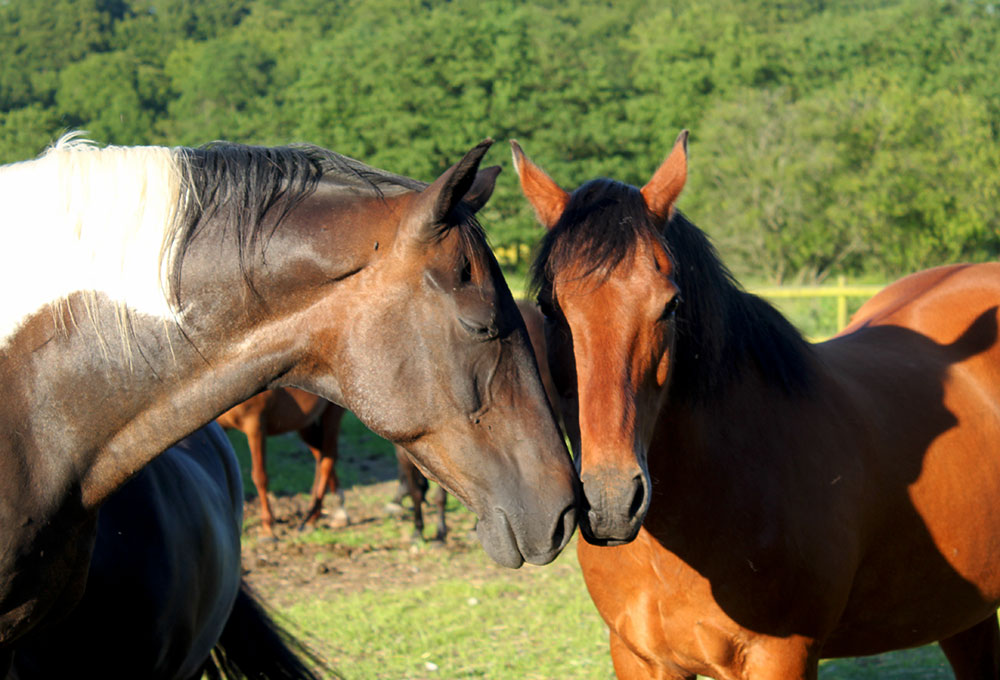 I get it. The wish for a relationship to be something we need it to be. But is the horse given the opportunity to be equal in this? Would he really choose to do this with you, that you offer, over living a horse life with horses?
I get it. The wish for a relationship to be something we need it to be. But is the horse given the opportunity to be equal in this? Would he really choose to do this with you, that you offer, over living a horse life with horses?
What is freedom worth – in comparison to “safety” (and again – how safe are they really with us?)
But I do understand the fear. If I let my horse(s) out in a big pasture, or even out into “nature” without fences – would they ever come back to me?
I am a pragmatic person. I don’t believe in letting all horses out to fend for themselves right now and right here. We have created a world where there would be problems if we did that. But it is possible to let many more horses out. As we can see (and know) – other bigger mammals do quite well on their own, out there, in nature. I don’t think this is the issue. I think our emotional needs to be needed, to be the caretaker, to feel loved and not questioned in that love etc. – is the problem.
And there is no need to “shoot me” – I am just the messenger. Just pointing out the evident facts. We do know what horses needs. And very few people can today provide them with this. And what I see – is very little will to do so.
And if you feel judged. It is not coming from me. I am not out to “correct” anybody’s choices. I just share what I have found for me. I do think it is possible to both be with, work with, ride etc – horses – in ways that are more aligning with their needs and nature. If you are a person working on that – I will cheer you on! What I want to do is to raise the questions, open up for solutions, discussions, problem solving, inventiveness, new perspectives, new ideas.
But keeping on closing our eyes will not take us anywhere. By choosing us, ourselves over our horses – and their needs, but call it an equal relationship, call them partners, keep on somehow seeing horses as they were put on this earth to serve us, and have very little purpose to themselves – we are keeping ourselves in the dark. And our horses with us. So we can keep on getting our emotional needs met – by them.
I don’t think that is fair. Or equal. Or Ethical. Or congruent – when we work in the field of equine assisted interventions. And I want it to be all of that. When I work.
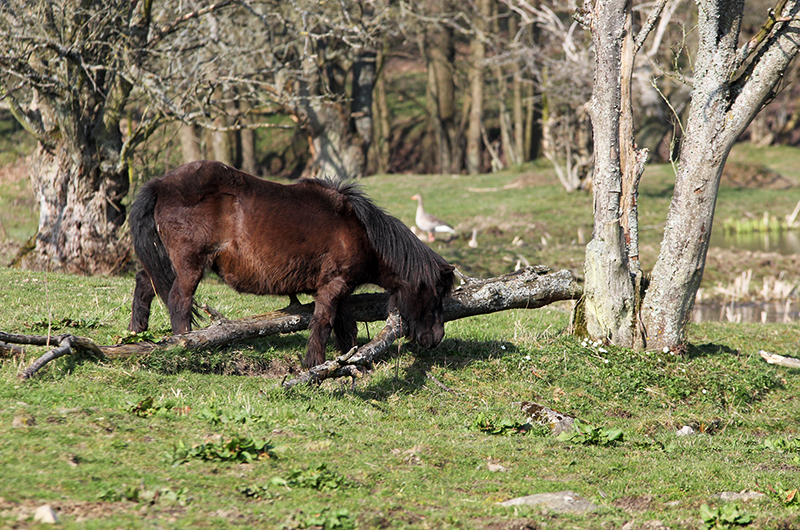
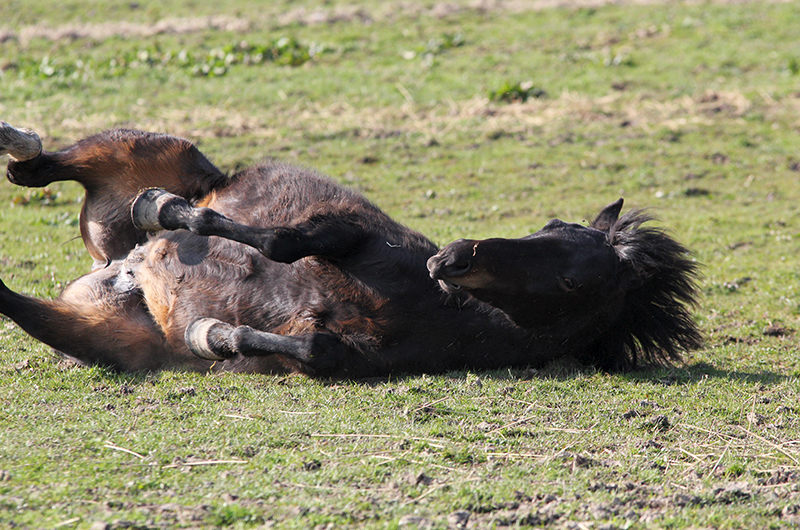
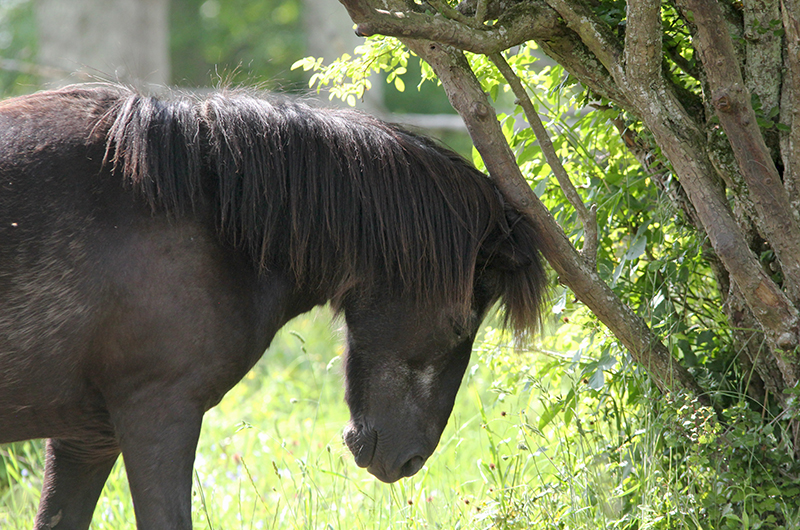 Text and pictures are copyright protected © Katarina Lundgren 2022
Text and pictures are copyright protected © Katarina Lundgren 2022
When you subscribe to the blog, we will send you an e-mail when there are new updates on the site so you wouldn't miss them.
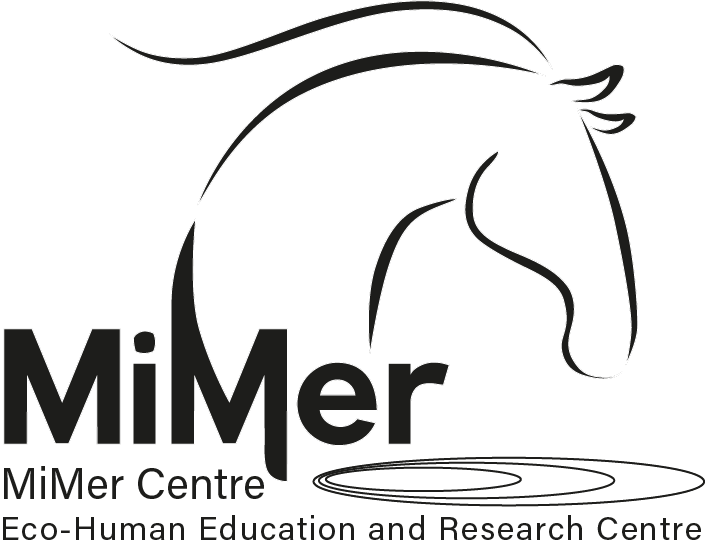

Comments 3
My whole doctorate is around self-care
Teatime-metime.org
Thanks so much for sharing
Great blog Katarina. I wholeheartedly agree that horses can take care of themsleves, if we let them, and provide the best conditions for them to thrive in. I see it as a 'success' in that respect that when I enter my field of horses, they 'clock' me but often don't look up. They need nothing from me. When you then get connection with them, it is such a gift as they have chosen to come close and be with you for no reason other than they chose to be close. It is a more authentic relationship when they don't have to depend on humans.
This post is a powerful wake-up call about equine self-care! I love how Katarina challenges traditional caretaking—barns, gadgets, training—and instead urges us to trust horses’ own rhythms. Emphasising space, social herds, natural grazing, and diverse terrain reframes welfare from human-led to horse-driven. Thanks for redefining self-care as mutual, authentic, and rooted in freedom and respect. Truly insightful, wonderfully inspiring piece.
